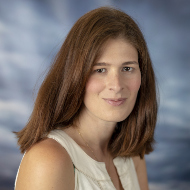During the summer of 2019, one of our Graduate Student Outreach Fellows planned to lead a no-conflict training with the "Graduate Outreach Club" at her university. A few days before this was scheduled, I got an email from the president of the "Share Your Science" organization at that same university and department requesting a phone call. What followed was one of the more confusing conversations I have had in my life. The president had no knowledge of the fellow or the training and was only calling because one of his professors had mentioned NCSE in class. It turns out that "Share Your Science" and the "Graduate Outreach Club" were two independently operating organizations that were only slightly aware of the other's existence. When I commented that it was weird that there were two completely separate graduate outreach clubs within the same university department, he laughed and said he actually thought there were four.
While working with our fellows across the country, I've gotten acquainted with the ins and outs of informal science efforts at myriad universities. It's great to see that both graduate student motivation and departmental support for effective informal science outreach is at an all-time high. However, one thing that keeps emerging from conversations with all of our university partners is just how siloed these efforts become. It seems like everyone who has the idea to share their love of science broadly has to create a new mechanism to accomplish that goal. We continue to reinvent the wheel, over and over.


